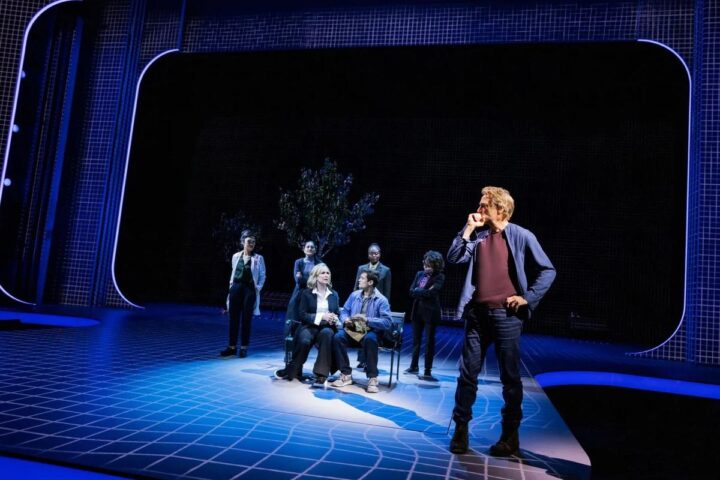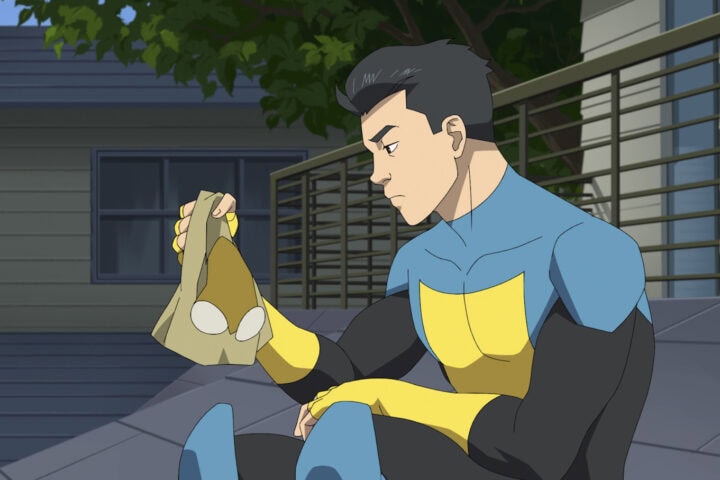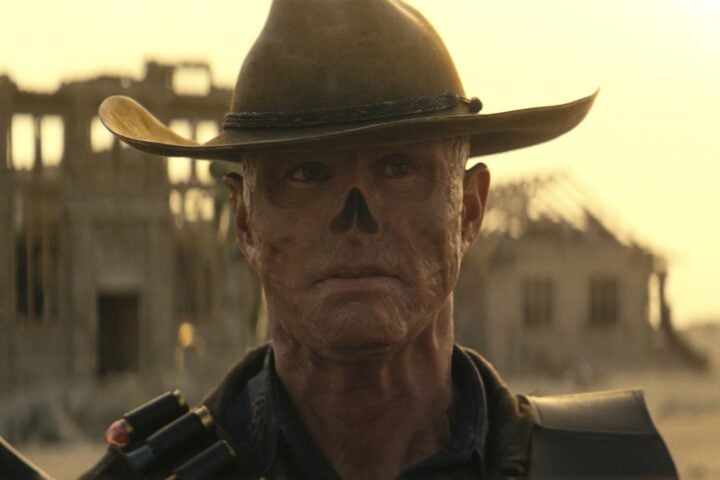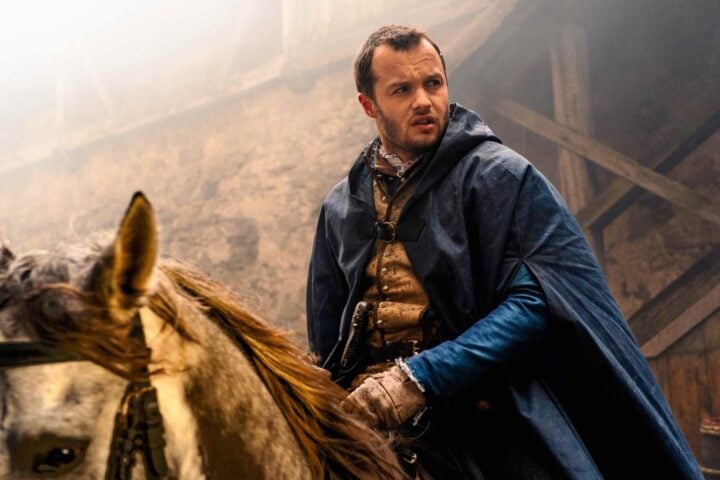Park Chan-wook and Don McKellar’s The Sympathizer is a post-Vietnam War tale about a man struggling to be two things at once: Vietnamese and American, capitalist and communist, solider and friend. Ironically, the eight-part miniseries itself achieves a similar duality, succeeding as both an almost academic inquisition into the nebulous nature of racial identity and a raucous spy tale, as well as a high-speed comedy and a dark, biting drama.
Adapted from Viet Thanh Nguyen’s Pulitzer Prize-winning novel of the same name, The Sympathizer revolves around a character known simply as the Captain. Played by Hoa Xuande, the Captain is a half-French, half-Vietnamese spy and self-described “man of two faces.” By all appearances, he’s a member of South Vietnam’s secret police and an ally to the Americans. In truth, the Captain is an agent of the communists, working undercover to ensure their revolution is a success—or, at least, he’s pretty sure that’s the truth.
When we first meet the Captain, he’s being held captive in Vietnam by the communists. He keeps trying to explain that he’s secretly been working for them ever since he fled the country in 1975, but they don’t believe him. To get to the truth, they force him to write draft after draft of a “confession,” explaining everything that happened to him after the Fall of Saigon, from his expatriate life in L.A. to his dealings with the C.I.A. and even his brief tenure in the movie industry. The story we see is the one told in his final draft, narrated by the Captain himself.
This framing device allows The Sympathizer to have all sorts of metafictional fun, with the Captain continually interrupting, rewinding, and rewriting his own story. In one moment, he’ll admit to the fact that he’s describing a scene that he didn’t actually witness. In another, he’ll turn and speak directly to the camera to explain why a sex scene is not, in fact, gratuitous.
Park is in his element with a tale that zips around like this, dashing between timeframes, across oceans, and smashing through fourth walls with devil-may-care verve. He and The Sympathizer’s other directors, Fernando Meirelles and Marc Munden, continually find clever ways to collapse time and space as we hop between different points in the Captain’s story, using match cuts that turn rotary phones into a car’s speeding wheels and an egg yolk into the smiling mascot of an American burger joint.
These visual and narrative flourishes aren’t just entertaining stylistic choices, as they speak directly to the ideas at the very center of the series. Because, fundamentally, The Sympathizer is a story about storytelling. More specifically, it’s about the battle for narrative control—of how that war will be understood in the years to come—that broke out after the real fighting in Vietnam concluded.
No matter how many times he rewrites his confession for the communists, their stony-faced officers still decry his “Hollywood cliffhangers” and sentimental writing style. In America, he smiles politely as the story of Vietnam is retold by American politicians, artists, and academics, each bending it in some self-serving way. Whether it’s being painstakingly recreated on a Hollywood film set or re-imagined through the Captain’s own ever-changing confession, the whole concept of Vietnam is being continually reconfigured.
This sense of a story that’s in constant flux is embodied by Robert Downey Jr., who appears as a variety of different characters throughout. He first introduces himself as Claude, the C.I.A. agent who serves as the Captain’s handler. With his frazzled orange hair, liver-spotted skin, and glassy eyes, Claude looks like a fake dollar bill dropped in a dirty puddle. In the episodes that follow, Downey re-enters the story as a John Waters-esque professor of “Oriental Studies,” a self-aggrandizing congressman with a Clint Eastwood whisper-growl, and a New Hollywood director determined to tell the “authentic” story of the Vietnam War, just so long as that doesn’t involve giving Vietnamese people any actual lines. It’s the perfect role for an actor man whose boundless energy has often seemed like it could use two or three more bodies to contain it.
While Downey Jr. pinballs between new roles and ostentatious affectations, Hoa Xuande holds steady at the center of it all. The Captain is described at one point as a “teacher’s pet,” and that pretty aptly sums up his whole vibe. Agreeable in a way that never quite feels authentic, he suggests a kind of plastic person. Everyone thinks that he’s their man, and he does his best to uphold that illusion for them. But the more he tries to be all things to all people, the more his own grip upon his identity begins to weaken. Inch by inch, he loses himself—and Xuande makes sure that we feel every agonizing moment of his slow self-destruction.
Since 2001, we've brought you uncompromising, candid takes on the world of film, music, television, video games, theater, and more. Independently owned and operated publications like Slant have been hit hard in recent years, but we’re committed to keeping our content free and accessible—meaning no paywalls or fees.
If you like what we do, please consider subscribing to our Patreon or making a donation.







Was this whole series dubbed in a recording studio? No one sounds like they are speaking live on tape. It’s very disorienting. Even Robert Downey Jr sounds fake. And the lead actor is wearing a terrible toupee which means not only is his hair fake and his voice is fake but the whole series is fake. Is that the impression they were going for?